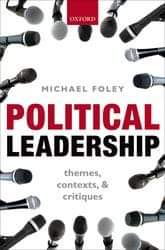Leadership in politics is earned, not demanded, and it is certainly for a season. It is also a universal truism that democratic politics abhors autocracy, absolute overbearing leadership and despotism in whatever shape or size.
The duration of leadership tenure and control may depend largely on individual foresight, integrity, credibility and level of performance in public service and assigned responsibilities in state or national scheme of things.
Researches premised on comparative political leadership tenures revealed that a leader may or may not necessarily be a king maker. Non king makers have the trust of their followers, same as political king makers.
King makers are in the upper class of political leadership. Their words are laws, commands/orders are to be obeyed strictly by supporters and loyalists. Dogged leaders are sometimes referred to as political demigods. Whereas, a political leader within a group may just be a mere figure head whose orders may or may not be obeyed strictly by members.
A political group leader is influential to a certain degree, but his or her directives and orders are in most cases subjected to further directives or approvals by king makers within a larger political group or family. This arrangement is common and universally acknowledged in the political space.
All leaders, be it a small or larger group leader gradually fades away in style due to unavoidable emergence of new political forces, and it starts by mild conscious and unconscious confrontations which usually present the leader for proper scrutiny in the public court. His or her integrity and credibility may be questioned from time to time, as negative results emanates from public service records and lack of moral justifications for actions and inactions.
Various studies and comparative analysis have shown that verified evidence of unscrupulous financial dealings, looting of public treasury, overbearing dominance and negative influence in the political arena tending to show deliberate greedy posture, intention to perpetually dominate and control the political space for life; may be resisted by some or majority of enlightened supporters and loyalists, leading to gradual repudiation of earned political leadership.
Another reason linked to leadership tenure extinction is the rise of potential new leaders who are desirous of controlling the political space like their godfathers. This group usually break away to form alliances with familiar powerful forces in the political system to weaken the credibility and integrity of their overbearing godfathers and leaders.
Political scientists and researchers at Havard Institute of Politics found out in their multifaceted researches that political leadership tenure may also terminate due to prevailing political and economic realities, deliberate actions and inactions of frustrated loyalists who sometimes act as betrayals/traitors, as well as, the introduction of new voting patterns and improvements in electioneering transparency, fairness and credibility.
And as supporters and ambitious loyalists align with these new trends and other emerging political forces, absolute control of power by political godfathers begin to depreciate, new leaders will automatically emerge to takeover and dominate the political space. These facts are responsible for defections from one political party to another, alignments and realignments with strange or known political forces by loyalists in search of relevance, political power and greater leadership roles.
In Nigeria, political leadership tenure extinctions are real, and available records revealed that no political leader have been able to position himself or herself as a king maker for life, attesting to the results of studies conducted pointing to show that there can be no permanent king maker in the realm of politics.
In fact, a complete success story of any visionary and dogged political leader, governor or president should begin with his or her socioeconomic policies and programmes which positively impacted lives, infrastructure development and should end with the testimony of key roles played in the selection, electioneering victory and inauguration of his or her successor.
Failure to successfully control the political system in collaboration with other leaders to install a successor amounts to colossal failure, and may be politically damaging to the leadership pedigree and credibility of the outgoing leader, governor or president.
Any leader or public office holder that knows his or her onions must do everything and anything possible to play leading roles in the choice, electioneering victory and inauguration of his successor.
Studies centered on political transmission of power in constitutional democracies around the world attests to these facts. And any leader, governor or president who is unable to play substantial leading roles in the selection and inauguration of a successor automatically terminates his or her leadership tenure on the day of handover of political power. It can be very frustrating and painful, and must be avoided.
Leaders like Balarabe Musa, Chief Jim Nwobodo, Chief Gabriel Igbinedion, late Chief Adedibu of Ibadan, Solomon Lar, Dr Saraki of Kwara State, Late Chief Bola Ige, and many others were great political leaders but had to at one time or the other relinquish absolute political control to some of their key supporters and loyalists, though not willingly but through the persistent determination, struggles and sagacity of enlightened loyalists.
No political leader can avoid loosing grip of absolute political control, it is a matter of time. And in our political milieu bedevilled by massive corruption, treasury looting and deceptive politics, leaders are bound to forfeit substantial part of political control and less patronage as soon as they end their tenure either as a Senator, governor or President.
Therefore, the idea or notion that a particular leader has the uncommon capacity to perpetually or permanently retain the status of absolute king maker for life in Democratic Politics should be discarded. It is clearly unachievable based on the outcome of series of studies conducted globally by political scientists.
A wise leader knows when to step aside, and be satisfied with the status of an elder statesman devoid of overbearing dominance.
In all the States in Nigeria, including Delta State, the situation is the same. There were leaders who held sway at one time or the other in the political system from 1960 to1999, but had to unwillingly step aside due to reasons adduced above, for new breed of leaders who were their loyalists, associates and supporters to take control. This clearly corroborated results of studies conducted that there can never be a permanent king maker in politics.
Political Leaders emerge and fades away with time, no matter how powerful they may be. It is universally referred to as political leadership tenure extinction, occasioned by old age or unscrupulous financial dealings, fractured and/or questionable moral integrity arising from available public service records, deliberate overbearing, uncomplimentary leadership dominance and negative influence in the political cosmos.
Finally, political actors must of a necessity accept the fact that results of researches have shown that political leadership tenure extinction is real universally, and there is little or nothing any autocratic leader can do to retain the status of permanent or supreme political king maker in the realm of partisan politics.
This is a universal truism, no permanent king make in politics.
***
About the writer; Dr Fred Latimore Oghenesivbe Esq, is a renowned political communication strategist, a lawyer and Chairman, Coalition for Media Politics, CMP. He is also a member of the International Communication Association, ICA, and Full Member, Nigeria Institute of International Affairs, NIIA.


